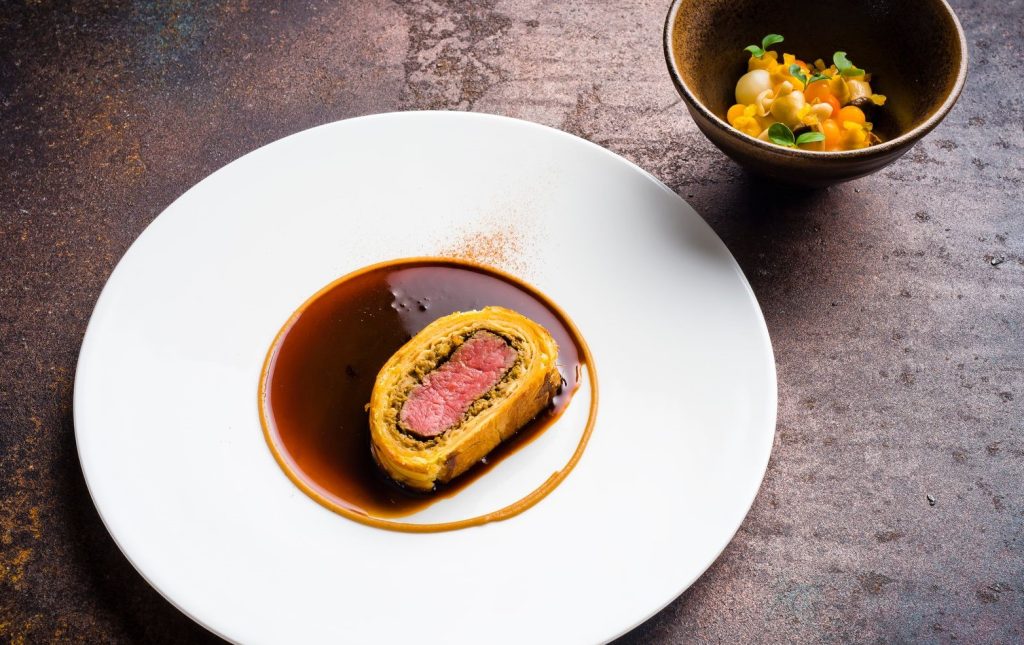IHM multimedia reporter Isha Borkar speaks to award-winning chefs, restaurant general managers and F&B concept developers, about what it takes to be a successful destination restaurant.
Post-pandemic, destination hotels and restaurants are on the rise. Hilton’s 2023 Trends Report reveals that nearly half of the travellers surveyed will be looking for more immersive and authentic cultural experiences this year. American Express Travel also revealed that 81 per cent of travellers worldwide agree that trying local foods and cuisines is what they look forward to the most whilst travelling in 2023, with 47 per cent of Gen Z and millennials reporting that they have planned an entire trip around visiting a specific restaurant. 66 per cent of this demographic take inspiration for where and what to eat from social media.
Hotels and restaurants need to stand out in order to end up on the discovery page of Instagram, or the TikTok of a popular travel blogger. It’s becoming all the more competitive for venues to be recognised. The need to be innovative and experimental alongside maintaining authenticity is gaining momentum, so BHN spoke to a range of F&B professionals to learn more about the journey to success.

Wayne Brown, global VP of culinary development at Ennismore’s F&B Concept lab, Carte Blanched, defines destination restaurants as “experiential and immersive, with all the hallmarks of what makes a standout place to visit. This includes a strong story or heritage, excellent food and beverage, and stylish interiors”. He goes on to add that such venues can generate a higher return on investment.
To discover the value proposition of a destination restaurant, research is required; specifically target customers and geographical location. Brown says that a destination restaurant does not usually offer breakfast and relies on tourism for its success.
“We spend the time trying to scratch the underbelly of the city and learning as much as we can to complement the local restaurant scene and community and to build something that is unique and can be accepted as their own. We do the same level of research for a concept as if it were our own life savings and are extremely diligent in the process,” he explains.

Peter Avis, general manager at Galvin at Windows, agrees. He says: “A destination restaurant should have a really special quality to it”, and must give guests a reason to travel there. “It should offer a unique proposition such as an incredible view, or an amazing location, or have truly incredible food served.”
Galvin at Windows is a modern French haute cuisine restaurant overlooking Hyde Park in central London which had a Michelin star from 2007 to 2020. Whilst the views alone could award Galvin its status as a destination dining venue, Avis argues that having a trustworthy team is integral to achieving such repute.

“It’s so important that our guests feel as though they are having a truly special experience, especially when they have travelled from afar, and this can only be possible when working alongside a team you really trust. Destination dining is often a luxury service,” he said.
The quality of food and beverage at any venue will fundamentally define a guest’s impression. It has the power to make any restaurant stand out from its competitors, most visible in the display of accreditation. One which stands on its own merit is a Michelin star.

Hrishikesh Desai, a Michelin star chef, explains: “The accreditation acts as a huge marketing and PR tool for the business and boosts the sale of products and services of an establishment. It also helps in recruitment, attracting the best staff, and getting the word out about the restaurant in the industry. A Michelin star helps in the evolution process of the establishment too, driving it on to continue to innovate and be the best.”
Desai won the Roux scholarship when he was 29 on his first attempt and is currently working as the chef patron at Cumbria hotel, Farlam Hall. He says that a Michelin star requires an incredible amount of discipline to achieve and maintain.
“To obtain a Michelin star, a restaurant should meet five criteria: the quality of the products; mastery of flavour and cooking techniques; the chef’s personality in his cuisine; value for money; and to maintain success requires consistency between the visits by Michelin inspectors.

“A good dish needs research and development through constant trials and errors. Originality is the result of creativity and innovation coming together with a chef’s experience. Authenticity comes from the chef’s personality and conviction. Ultimately, excellent quality, fresh ingredients are required to elevate a good dish to an excellent dish. I’m very proud that the Tandoori Beef Wellington on my new menu perfectly balances all of these elements and has received rave reviews already.”
Fusion-themed cuisines are popular all over the world. A striking element to this, which also works well on its own, is sustainability and environmental friendliness.

Michelin star chef and the culinary director of Marle at Heckfield Place, Skye Gyngell, highlights: “It’s really important to be authentic and to work carefully and conscientiously – we are very aware of the significant impact hotels and restaurants have on their environment as well as the local community. We try and work as mindfully as possible, whether that be the welfare of our staff, the use of plastics, food waste, and soil health.”
Marle at Heckfield Place has a Green Star from The Michelin Guide in 2022, awarded for the restaurant’s focus on sustainability. The site has a country rustic theme which ties in well with its aim to serve local, seasonal produce.

Another plant-focused, zero-waste restaurant is JAMPA in Phuket, Thailand. Chef Rick Dingen oversees the restaurant which forms part of Tri Vananda – a $182 million wellness community. JAMPA follows a sustainability plan of “local ingredients, live fire, and zero-waste cuisine”.

Dingen explains how they practice this philosophy: “At JAMPA, we are focusing on locally sourced products with a twist of European cooking methods. It means we are using products from our farm and also from small farmers close by. For us, it is important to showcase locally sourced, seasonal ingredients in the best way possible.”

The central focus of a destination restaurant is the right balance between originality and creativity. Dingen adds: “By creating our eco-system, it helps our guests to understand where ingredients and dishes originate. We believe that what grows together tastes well together.”

When it comes to branded hotels, the balance between originality and creativity can be difficult to strike as a result of the number of stakeholders involved. For example, the dynamic between celebrity chef, hotel owner and the hotel brand must be collaborative if the restaurant concept is to succeed.
Celebrity chef Jason Atherton highlights the difference between operating a high street restaurant compared to a five-star hotel restaurant: “When I run a restaurant like Pollen Street, I’m the master of everything. But when I got invited by Ian Schrager to develop Berners Tavern, it’s more democratic. The secret to its success is listening to people.”
Berners Tavern is a British restaurant at luxury hotel The London EDITION. Hotelier Ian Schrager created the EDITION brand in partnership with Marriott International.

Atherton goes on to mention how the “corporate structure” of branded hotels and restaurants takes “a lot of managing on all sides” to leverage the expertise of those involved. “I have expertise in the London marketplace for instance – what people like to eat, why they like to eat it, the price point, the demographic of people, and so forth,” he says. “Marriott’s expertise is in the operation of hotels, and Schrager’s expertise lies in the design and delivery of experiences. His influence in the fashion world really put Berners Tavern on the map when it launched.”
Summarising his thoughts, Atherton adds: “The key is to listen, be patient, always take advice, and at the same time never lose your integrity of your own brand.”








